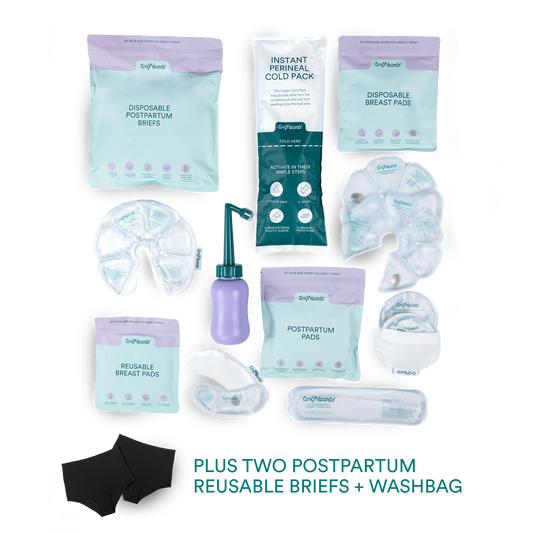
As parents, we all know that buying presents for our kiddos can be difficult. While we try our best to live up to the high expectation that is Santa - it's easy to worry about whether your little ones will enjoy their gifts, but it’s just as important to ensure they are safe for them to play with.
Safety is something we are super duper passionate about at Tiny Hearts, so let us take you through our top tips to ensure you find the perfect (and safe) Christmas present for your little one.
Things to Avoid
While it’s difficult to pinpoint exactly what toys not to buy, there are specific characteristics you can identify before purchasing.
Due to our little one's explorative nature, they will often put toys in their mouth to suck and chew on them. To avoid choking, it is best to not give children under the age of three toys that contain the following:
- Small parts (such as little figurines or removable components)
- Coins
- Batteries
- Screws
- Marbles
- Small balls or oval-shaped objects
- Electronic toys that have cords longer than 22cm
Swallowing small parts can result in severe internal injuries.
Buying for your Child’s Age
It’s essential that you follow the recommended age bracket printed on a toy. When buying for babies, ensure that you are buying toys that are suitable for children 36 months and under.
Providing your child with toys that are not recommended for their age can increase their risk of injury.
Packaging
Packaging should be disposed of immediately after the toy has been removed from its case. Devastatingly, babies can be strangled by ribbons and elastic that is longer than 22cm and suffocated by plastic packaging such as bags.

Product Safety Australia
Before you hit the shops, check out the Product Safety Australia website which is powered by The Australian Competition and Consumer Commission.
This page will keep you updated on any recent toy, equipment and furniture recalls, suitable toys to purchase and will provide additional toy safety tips. You are also able to report unsafe products on this site if you identify a potential hazard at home.
Be Mindful of Where you Shop
It’s best to stick to trusted stores when buying presents for your child. Discount stores can stock second-hand or cheap and flimsy toys that can fall apart easy - hence the minimal price tag.
Christmas Day Checklist
- Read all labels and instructions before wrapping so you are familiar with the use and supervision required
- Dispose of all packaging and wrapping as soon as possible
- Check for broken toys or loose parts immediately after opening
- Play safe!
And hey, while we’ve got you here...
Not sure what to buy the Proactive Parent in your life? How about the gift that keeps on giving?
Our Family First Aid Kits contain 75 hand-picked items that’ll have you covered for any bump or tumble that life will throw at your little one. Available in four colours our kits are the perfect life-saving gift to give this Christmas. Order yours here!

Sources
www.productsafety.gov.au







